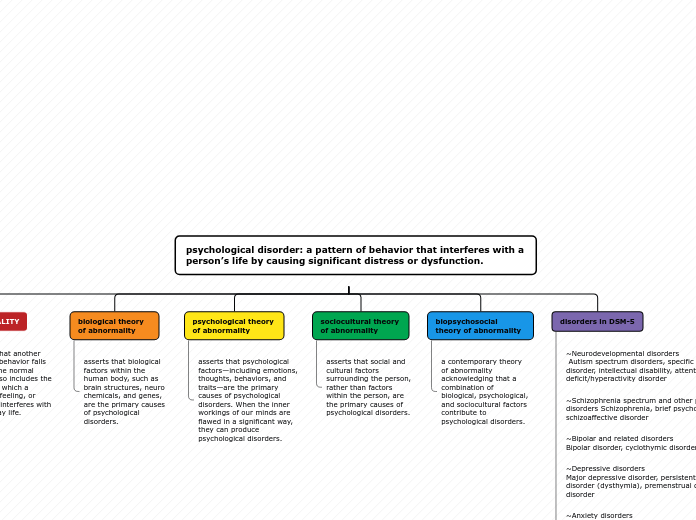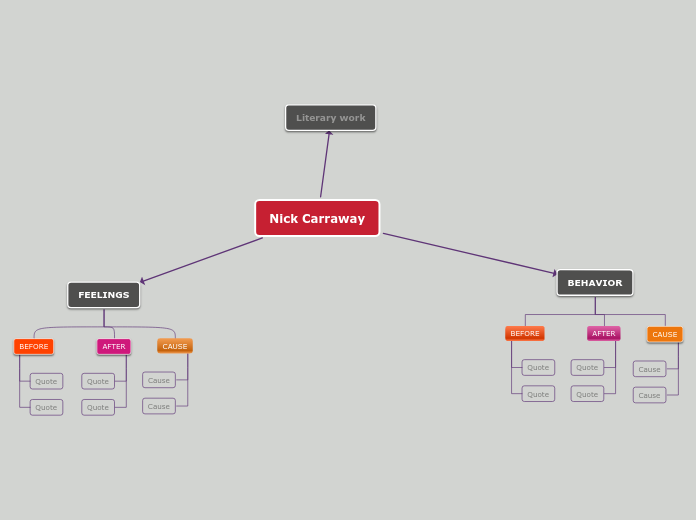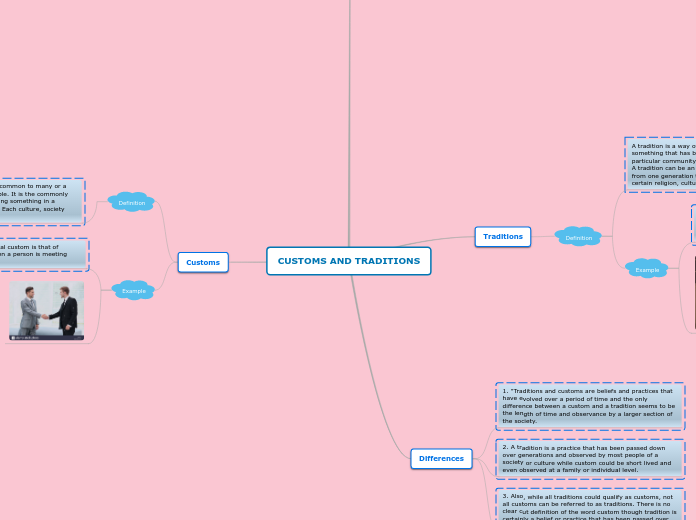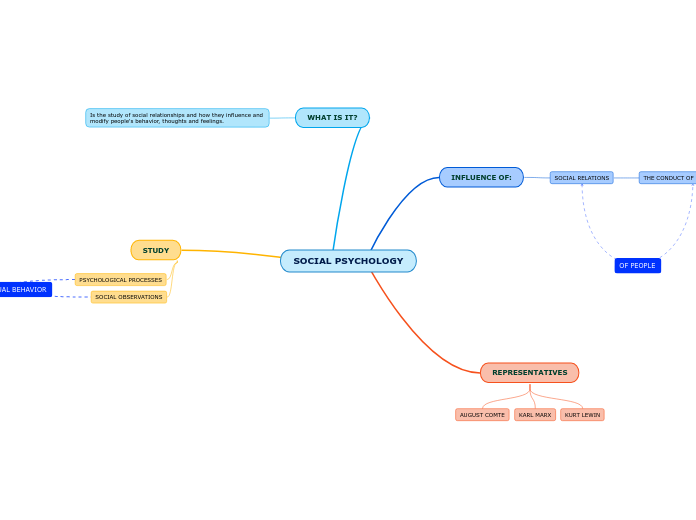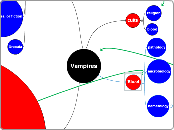por Daijanae L Leonard 4 anos atrás
364
Tree organigram
Psychological disorders are characterized by behaviors that cause significant distress or dysfunction in a person's life. The biopsychosocial theory suggests that a combination of biological, psychological, and sociocultural factors contribute to these disorders.
